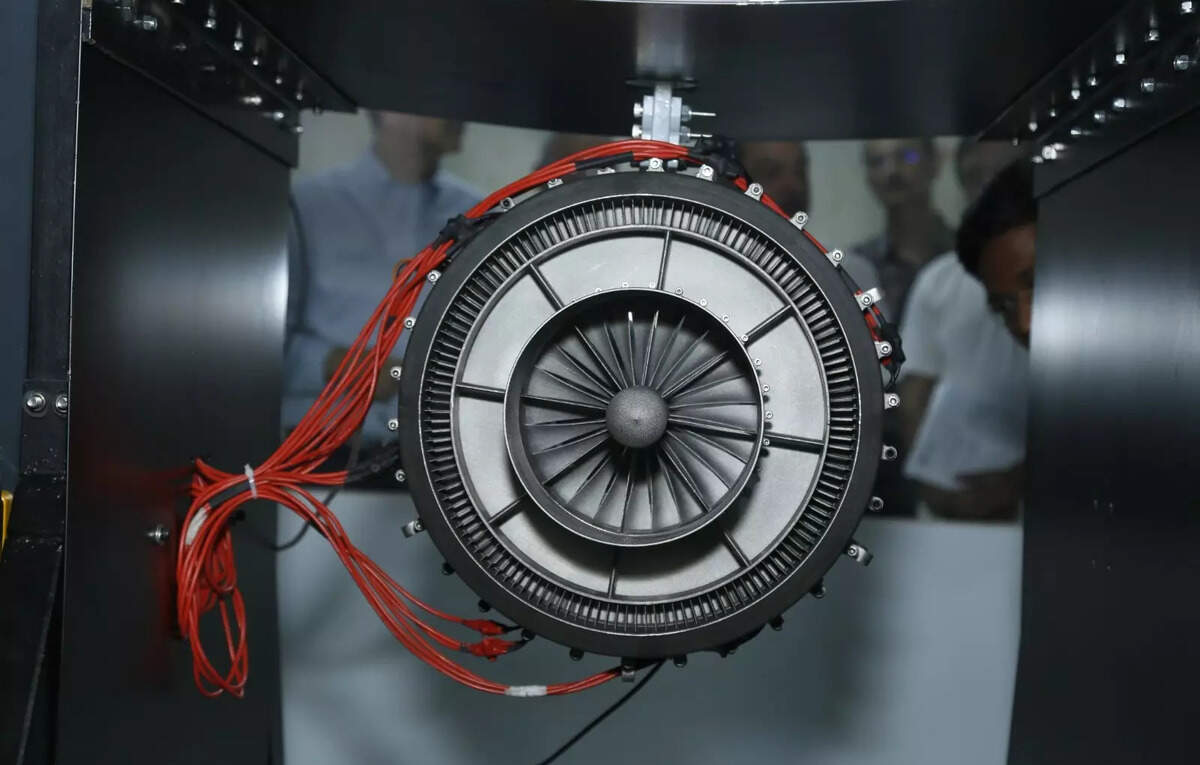SOURCE: AFI


In a groundbreaking development for sustainable aviation, SiriNor, a deep-tech aerospace startup based in India and Norway, has successfully completed ground testing of the world’s first all-electric jet engine, reaching Technology Readiness Level 6 (TRL-6). The milestone test, conducted in Pune on April 29, 2025, marks a pivotal moment for clean aviation technology, with the company now setting its sights on disrupting the $100 billion global jet engine market by 2030.
SiriNor’s proprietary propulsion system promises emission-free air travel, addressing one of the aviation industry’s most pressing challenges: reducing its carbon footprint. Traditional jet engines rely on fossil fuels, contributing significantly to greenhouse gas emissions, but SiriNor’s all-electric design leverages advanced battery technology and electric propulsion to eliminate emissions entirely. The TRL-6 achievement indicates that the system has been validated in a relevant environment, a critical step toward eventual certification and commercial deployment.
The company’s roadmap is ambitious yet strategic. SiriNor plans to commercialize its electric engines for unmanned aerial vehicles (UAVs) by mid-2026, followed by certification for seaplane engines by 2027. The ultimate goal is to scale the technology for regional aircraft by 2030, tapping into a market that serves short-haul flights—a segment ripe for sustainable innovation. Posts on X have echoed enthusiasm for the breakthrough, with users highlighting its potential to revolutionize aviation, though some remain skeptical about the timeline given the industry’s rigorous certification processes.
While the promise of electric jet engines is enticing, challenges loom large. Battery energy density remains a limiting factor for long-haul flights, and scaling the technology for larger aircraft will require significant advancements in energy storage. Additionally, the aviation sector’s stringent safety and regulatory standards could delay widespread adoption. SiriNor’s focus on UAVs and seaplanes as initial applications is a pragmatic move, allowing the company to refine its technology in less demanding operational contexts before tackling commercial airliners.
The global jet engine market, dominated by giants like GE Aerospace and Rolls-Royce, is notoriously difficult to penetrate, but SiriNor’s innovation could carve out a niche in the growing demand for sustainable aviation solutions. If successful, this technology could not only reduce aviation emissions but also position India and Norway as leaders in green aerospace innovation. For now, SiriNor’s achievement is a bold step forward, but its journey to transforming commercial aviation is just beginning.
NOTE: AFI is a proud outsourced content creator partner of IDRW.ORG. All content created by AFI is the sole property of AFI and is protected by copyright. AFI takes copyright infringement seriously and will pursue all legal options available to protect its content.